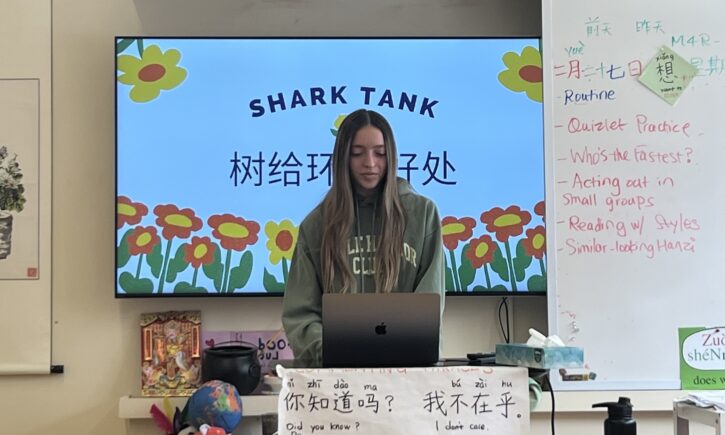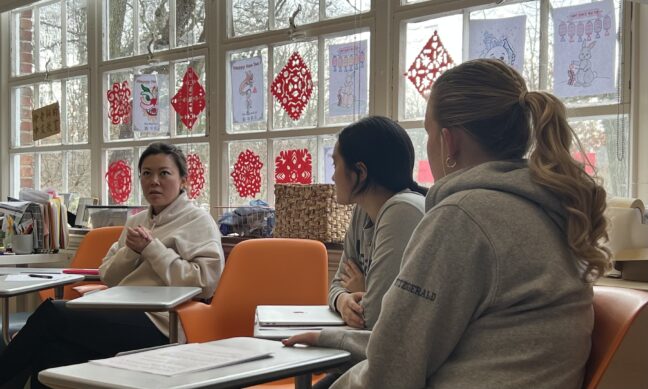Class: Advanced Chinese: Health and Environment
Grade: Upper School
Teachers: Ms. Xu
Could you identify an environmental or health-related challenge in China and around the world? Could you design a product to address this issue in a sustainable way? What about presenting that product to a panel of “sharks” entirely in Mandarin? In Ms. Xu’s Advanced Chinese: Health and Environment class, this was the task at hand.
Students came up with guiding questions centered around current environmental and health issues to start their projects. While diving into these questions, students were challenged with analyzing sources in Chinese and interviewing people living in China to gather firsthand accounts of how their selected topics are impacting real communities. Each student approached the project from a different angle; some chose issues that have personally impacted them while others researched topics they were unfamiliar with.
After completing the research and interviews, product development came next. Students got incredibly creative as they imagined drones that could eradicate air pollutants and mobile rooms that could aid in recovery from concussions. These ideas were brought to life through visual prototypes and slideshows that were refined through collaborative feedback sessions. Once each product was fully realized and ready to be showcased, it was time for the Shark Tank.

The sharks invited to hear the product pitches included local artist and entrepreneur Rayna Lo and Wen Chen, parent of Alex Jin 19′. The following products were pitched:
- “Sky Sweeper“: a drone that sensors and vacuums air pollutants
- “回收帮手 Recycling Buddy“: a mobile app that identifies recyclable materials and sends consumption reminders for reducing waste
- “Resting Room“: a mobile room for people to rest at work, especially if they are recovering from concussions
- “Tree Pot“: a self-watering device and service that brings more trees to urban communities
Following each pitch, the sharks gave their feedback to the presenters in Mandarin. Speaking tips, product critiques, and even personal anecdotes about the issues being discussed were all shared. After one product was pitched, “Recycling Buddy,” a minor communication error led one shark to believe the app was designed to recycle your friends, to which she expressed; “I thought it was an amazing thing! Social networking is so important”. Needless to say, the Shark Tank quickly became a lighthearted opportunity for students to connect with Mandarin speakers and deepen their understanding of the issues they had selected.
Not only did the Shark Tank assignment challenge students to think globally and utilize creative problem-solving skills, it also provided a great opportunity to practice presentational communication. Students will use the feedback from the sharks and this assignment as they continue to strengthen their language skills.

